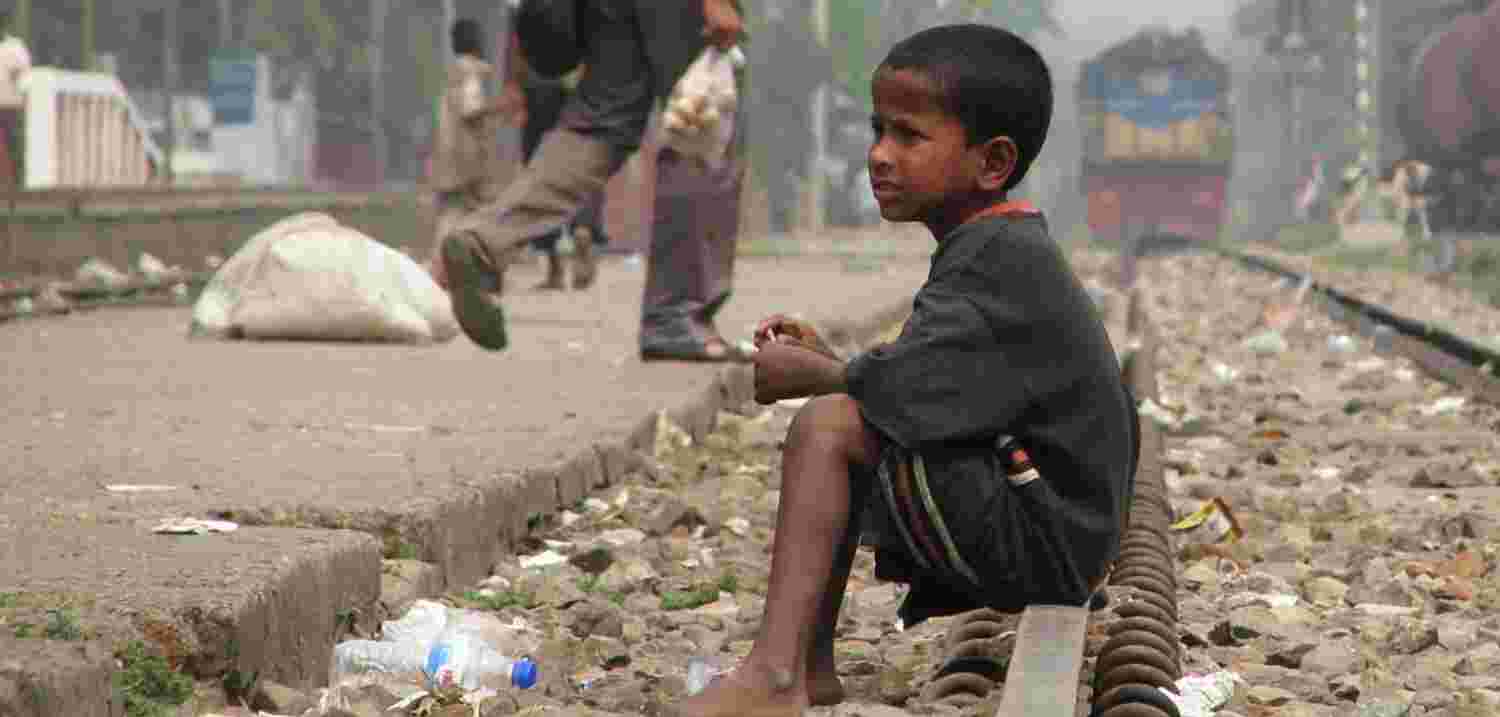Nexus of Good: Street to smart
Ashritha’s journey of transforming the lives of street children through collaboration with philanthropists and local as well global donors has proved its merit

There are a large number of incidents of exploitation of children by their own parents. They are engaged in rag-picking, begging, collecting food from restaurants, selling movie tickets in black etc. Street children are also exposed to anti-social activities. To transform the lives of such children, 'Ashritha', a Telangana-based voluntary non-profit organisation was founded by Pushpa Rani Pentapalli in the year 1999.
The NGO started its work from the slums of Fathenagar and Shobana colony of Balanagar and Quthbullapur urban mandals; and Shamirpet and Tandur rural mandals of Ranga Reddy district in Telangana. Financial support for these initiatives came from ARCO Baleno Foundation of Switzerland and US-based Prem Kumar Reddy. District Collector Ranga Reddy provided assistance under Project NCLP. Support also came from SKN (Netherlands), CRS (Baltimore, USA) and CEI (Italy).
The teachers identified to work in the above centres were oriented on the Bridge Course curriculum which was specially designed by the state's Sarva Shiksha Abhiyan resource team. They have to complete two books in 10 months, and later mainstream children in local public schools or any hostel-attached school in June-July for further high school education. More than 10,000 children have been mainstreamed so far.
Consequent to the bifurcation of the state into Telangana and Andhra Pradesh, a regular formal school was set up for the slum children in 'Holy Child English Medium school' style. This had to be done in response to revised state policies resulting in a stoppage of funding to NGOs. The attempt is to provide quality education comparable to any corporate school laced with facilities like computer labs, digital classrooms and playgrounds. Further, emphasis was on organising multiple events for children, including clean and green programme, exposure outreach programmes, cultural events, games and sports, annual days among others.
The focus of teaching is on the following:
• Motivation and sensitization on the protection of child rights: This includes sensitizing about the prevention of child labour, bonded labour and child marriages in villages. Child Vidhya Committees were constituted at the village level involving panchayat members, village leaders and SHG women. School children were too involved in the form of badi dandu committees.
• Juvenile Justice Act 2000: This was funded by a Ministry of Social Justice and Empowerment wing — National Institute for Social Defence. The NGOs at the state and southern regional level working with children were identified and oriented on the new JJ Act 2000.
• Drug abuse and de-addiction: This training was also funded by NISD and was worked out with NGOs working on de-addiction programmes.
• Consumer rights and awareness: This training was supported by the Ministry of Civil Supplies & Consumer Affairs and a donor, Caritas India (New Delhi), to enlighten villagers on consumer rights and awareness.
Projects funded by IGSSS have been undertaken to conduct studies on situation analysis of children working in the industrial area of Balanagar Mandal in 2004 in Ranga Reddy district, New Delhi; and on socio-economic dimensions of children engaged in begging in the Greater Hyderabad municipal area. This was funded by NISD in 2011.
Between 2003-04, the Zilla Parishad chairman of Ranga Reddy district, Kasani Ganeswara Rao, allowed the use of the DWCRA community hall building for organizing training programmes for women. In this period, with the funding from DKA (Austria) and CAPART regional office in Hyderabad, training for women was organized on "on-farm, non-farm and off-farm activities". More than 3,000 youth and women benefited from these training programmes.
Under on-farm activities, the women were trained by agriculture experts on crop management, pest management, azotobacter culture, azospirillum culture and vermicomposting culture; and they were even sponsored as beneficiaries for the construction of vermicompost pits. Training was imparted by experts, and free seed distribution was done to promote kitchen gardening in the backyards of their house.
In the context of non-farm activities, para-vet training for the small rudiments was imparted. Under the supervision of veterinary doctors, few beneficiaries have got their milch animals artificially inseminated. And, for the cultivation of para grass, seeds were distributed free of cost.
In off-farm activities, tailoring and maggam works are continuous activities. Few other programmes related to jute bags, oblique work, chalk-piece making, candle making, flower pot designing, plastic die making are also carried out. The trainees could even learn the making of pickles, papads, karas, sweets and savouries under cookery programmes. Further, bakery experts took demonstration classes to train the women on a few special bakery items like curry puffs, osman biscuits, cakes etc.
In 2008, a one-acre plot of land was allotted to Ashritha by the state government. Donors from Kinder Mission (Germany) and Caritas India (New Delhi) along with Prem Kumar Reddy, Kusma Reddy and CH Annapoorna came forward to support the ground and first floor of the building. A full-fledged school and a full-time skill training centre for tailoring and computer for youth and women are being run in this building. It is now being supported by the Lions Club of Jeedimetla & Nakoda Chemicals.
During the lockdown period, the organization could support the skill centre for women with some food essentials. The centre is now preparing masks and PPE kits to support the COVID management efforts. Each woman is stitching 100 to 300 masks per day depending upon her capacity.
Ashritha has demonstrated that a noble idea can find supporters from within and outside the country, and this support goes much beyond financial. It has also managed to partner with government agencies to scale its good work in the true spirit of Nexus of Good. It goes to the credit of Dr Pentapalli and her committed team to have come up with the idea of helping street children and making it happen.
Views expressed are personal



